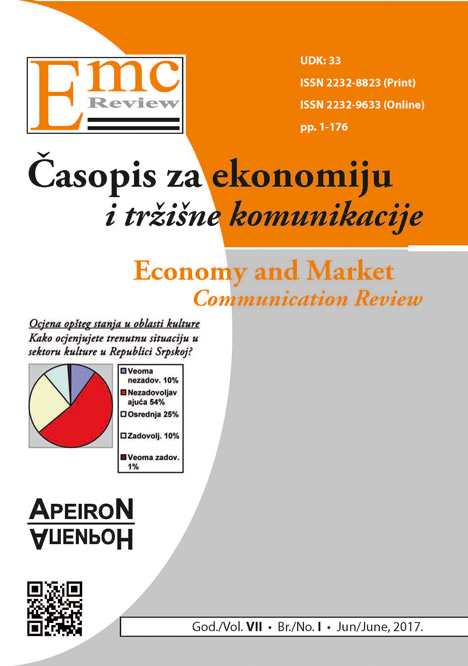METHODS FOR MODELLING OF WASTE MANAGEMENT / METODE ZA MODELOVANJE UPRAVLJANJA OTPADOM
DOI:
https://doi.org/10.7251/EMC1701050NAbstract
The waste is a product of everyday human activities, and we are faced with large amounts of waste daily. Inadequate method of waste treatment effects are numerous: pollution of the environment and hazards to human health, the loss of useful components from waste, or the exploitation and consumption of natural resources. In the XXI century the sustainable management of municipal waste will become essential in all stages, from planning to construction, handling, recycling and final decomposition. Range of new and existing technologies for waste treatment and waste management strategies require the maintenance of environmental quality at the moment, but also the fulfillment of sustainability in the future.
Integrated waste management should meet certain priorities in line with the waste hierarchy, such as requirements for recycling waste, to increase the use of renewable energy in order to looking for more socially acceptable options, and to preserve biodiversity and natural ecosystems simultaneously. Achieving these goals is possible only if all technical and non-technical aspects of solid waste management system are analyzed as a whole, because they are interrelated, and development in one area often influences the practice or activity in another area.
Various analytical tools and methods are used to help in decision making in waste management systems. Analytical methods used in the waste management system can be classified into two groups: engineering models and models of assessment system.
